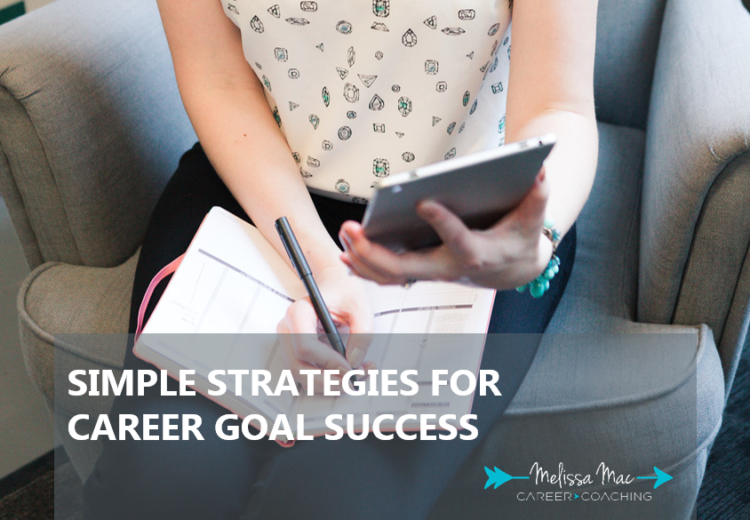It’s the time of year when people start telling you to set your new year’s resolutions and create SMART goals to help you get there and rah-rah-rah. Meanwhile, what you are really thinking about is how are you going to finish this project at work before the holiday arrives, will that last package arrive in time for the big day, and did you buy enough food for the family feast?
I’m not going to tell you to set your new year’s resolutions. You do what you want, when you want. Personally, I don’t actually set ‘New Year’s Resolutions;’ I tend to set my goals all year long and it’s a continuous process that shifts as goals get completed and new ones are developed. Yes, towards the end of the year I asked myself “What do I want to accomplish in 2018?” and developed a list. That list, however, flowed forward from current goals and achievements that I had made in 2017 as a natural progression.
For this moment, let’s not worry about your goals and resolutions. Let’s look at a practical angle of how you can better focus on your day-to-day management of your career to better succeed at what you are doing, which will allow you to reach your goals much easier.
Manage Your Distractions
We live in a world full of distractions. Whether they are thoughts racing through your mind, pop-up notifications, ringing phones, or emails coming in by the dozens, there are constant demands for your attention. The trick is knowing which ones to actually give your attention to. Which of these distractions are actually worth your time that will add to your productivity?
I’m not an advocate of multi-tasking. Why? Because multi-tasking means that you are not focusing on a single task to see it through to completion with the high level of detailed attention it deserves. Three simple actions you can implement:
- Reserve half an hour at the start and end of your day for emails. Don’t check your email at every notification. Stay focused on the task at hand knowing that you can give your full attention to your emails later on.
- Use your schedule to it’s fullest advantage. Block in time during your day to complete tasks and projects. Line up your tasks by priority to. Once your dedicated time for a task is up, move on.
- Tuck your phone in a drawer or a bag when you are talking with someone. Give the person in front of you the respect they deserve with your full attention. If you are constantly distracted by your phone while with them, your time with them will either be lengthened or you will not be able to fully accomplish what you need to in your given time frame.
Make Fewer Daily Decisions
Sounds crazy, I know. How can you make fewer decisions? Consider the minimal decisions you make every day: what to wear, what to eat, what route to take to work, etc etc. Either create a simple routine that dictates a lot of these decisions for you, or spend time on Sunday evening planning out your week. Utilize recipe sites and apps to help make weekly menus. Before bedtime pick out what you are going to wear in the morning so you don’t stand in the closet for 10 minutes because you can’t decide what to wear (seriously, who hasn’t done that?!) By reducing the minimal decisions, you can focus more the bigger decisions.
Leverage Your Time
This is the whole ‘work smarter’ approach. Do a quick evaluation of how you are spending your time and decide which activities are valuable and which ones are not. For at least three full days document how you are spending your time. From eating breakfast, to checking emails and social sites and news sites, to tasks and meetings, all the way through to post-dinner activities. How much time did you spend on each? Did you stay focused on them or were you jumping around from one to the other? Did you complete your tasks? How much time did you spend deciding what to do?
Three days will give you a pretty good picture of how you spend your time on average, particularly if you lead a life that is not exactly the same day-to-day. Focus on those questions above to help you better understand how you should be spending your time so that you can take an active approach to adjusting your schedule so that you are leveraging your time to it’s best advantage.
How Can This Help My Career Goals?
By better managing your time and attention you are freeing up your time to achieve what you need to on a day to day basis so that you can allow more time to focus on setting and reaching your career goals. Perhaps better time management means that you can actually invest time in professional development to help you launch upwards on your career ladder, or that you have time to spend on planning that business you want to create. Perhaps it even just means that you are able to be more effective in your current role which will garner the attention of the decision makers in your company making it an easier choice to offer you a promotion.
Whatever that next goal is that you want to achieve, remember that the actions you take day-to-day will help you get there. You have control over those actions – use them wisely!
________________________________________________________________________________
Need a little help achieving your career goals? Connect with me to find out how we can work together to help you reach success.

